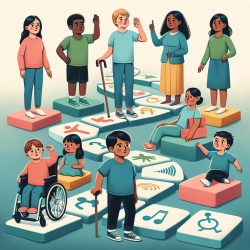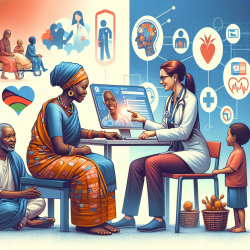As a speech-language pathologist, it is crucial to base our interventions on solid evidence and data-driven decisions. The research article titled "Developmental Milestones and Additional Disabilities in Children attending ESN/M School in Dammam, Saudi Arabia" offers valuable insights that can significantly enhance our practice. This blog will discuss key findings from the study and how they can be applied to improve outcomes for children with developmental delays and additional disabilities.
Key Findings
The study revealed that children with mild mental retardation (MMR) exhibited significant delays in achieving developmental milestones compared to their peers. The milestones assessed included:
- Smiling
- Sitting
- Walking
- Talking
- Continence
Additionally, 65% of the children with MMR had speech disabilities, 28% had visual impairments, 20% had limb weakness, 16% had hearing disabilities, and 15% experienced convulsive disorders.
Implications for Practice
Understanding these delays and associated disabilities can help practitioners tailor their interventions more effectively. Here are some practical steps based on the study's findings:
1. Early Detection and Intervention
Early detection of developmental delays is crucial. Regular screenings and assessments can help identify children at risk, enabling timely intervention. Implementing structured health education and IQ screening programs can facilitate early diagnosis and entry into special education programs.
2. Multidisciplinary Approach
Given the multiplicative effect of additional disabilities, a multidisciplinary approach is essential. Collaboration between speech therapists, occupational therapists, physical therapists, and other healthcare professionals can provide comprehensive care tailored to each child's unique needs.
3. Family and Community Education
Educating families and communities about the signs of developmental delays and available resources is vital. Awareness programs can empower parents to seek early intervention and support, improving outcomes for their children.
4. Enhanced Training for Practitioners
Training programs for family and community physicians should include exposure to early diagnosis and management of developmental delays. This can enhance their ability to support children with mental retardation and their families effectively.
Encouraging Further Research
While the study provides valuable insights, it also highlights the need for further research. Larger-scale studies on mental retardation and associated disabilities can help develop national evaluation schemes and improve early intervention strategies.
To read the original research paper, please follow this link: Developmental Milestones and Additional Disabilities in Children attending ESN/M School in Dammam, Saudi Arabia.










